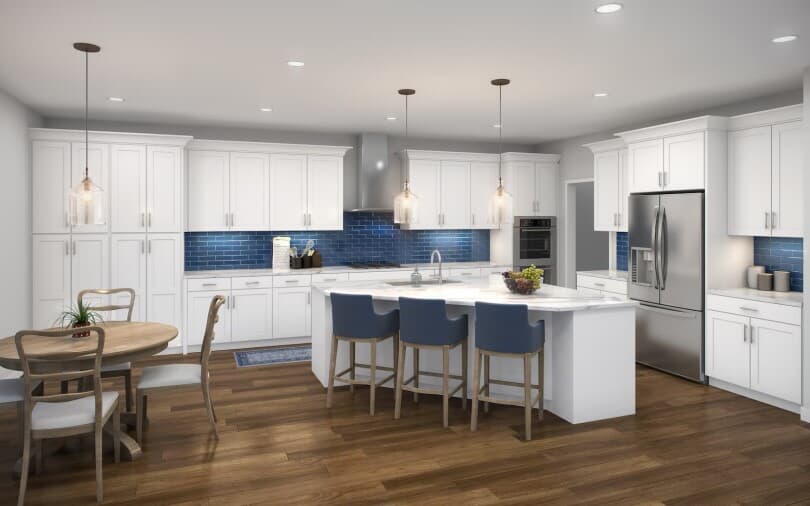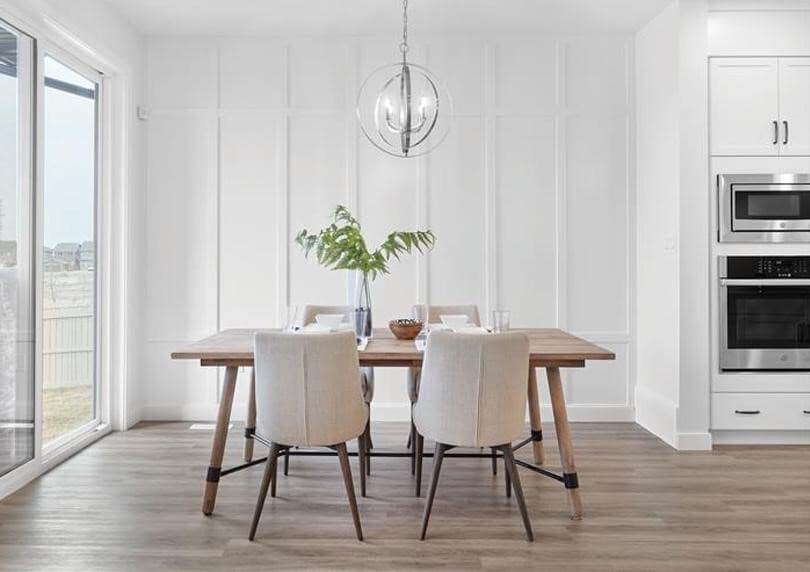What is “Cash to Close” When Buying a Home?

Understanding what it means and why it matters can save you from any last-minute surprises and ensure a smooth path to unlocking the door to your dream home.
To help you better understand this financial aspect of homeownership, we’re diving into “cash to close” in simple, easy-to-follow terms and answering common questions homebuyers have to help you better navigate the journey.
What is “Cash to Close?”
“Cash to close” refers to the total amount of money a homebuyer needs to bring to the closing table to finalize the purchase of a property. Think of it as the grand total you’ll need to pay on the day you officially become the proud owner of your new home.
What Does My “Cash to Close” Go Towards?
“Cash to close” is made up of a few essential components:
Remaining down payment
The down payment is a lump sum you put down upfront, usually a percentage of the home’s purchase price. The down payment demonstrates your commitment to the purchase, and the percentage you put down will affect your mortgage terms.
When you signed the purchase agreement for your home, you likely made an earnest money or initial deposit. This ultimately goes toward your total down payment, the remainder of which you’ll pay at closing through your required cash to close amount.
Closing costs
Closing costs are fees associated with finalizing the home purchase. They cover services like appraisals, inspections, title insurance, and various administrative expenses. Closing costs can range from 2% to 5% of the home’s purchase price.
Escrow and prepaid charges
You might need to prepay certain expenses, like property taxes or homeowners insurance, which get deposited into an escrow account where your lender will hold the funds until the applicable payments are due. These types of fees will vary depending on your property and location.
Additional fees
Depending on your specific situation or the terms of your purchase agreement, there might be additional fees or costs to consider. Typical costs include:
- HOA fees
- Courier or delivery fees
- Recording fees for filing the deed and other legal documents with the appropriate local government office
Adding up these items will give you the total “cash to close” amount. It’s crucial to know this figure well in advance of the closing day. Having the necessary funds ready ensures a smooth transaction without any last-minute hiccups.

Hadleigh Floor Plan, The Reserve Collection, Waterford Manor Community, Leesburg, Virginia
While the down payment is often the most significant part of the cash to close, closing costs and other expenses can add up. Being prepared and understanding the breakdown of these costs can help you budget effectively and navigate the homebuying process more confidently.
Other Common Questions Homebuyers May Have About “Cash to Close”
Can the cash to close amount change before closing?
Yes, it can change. Lenders provide a Loan Estimate initially, outlining the expected costs. However, some fees can fluctuate, and adjustments might occur before the closing date. It’s essential to review the Closing Disclosure document provided by the lender before closing to see any changes in the cash to close amount.
Can I use a personal check for the cash to close?
Generally, a lender will prefer a cashier’s check or a wire transfer for the cash to close amount to ensure immediate and secure payment. Personal checks might not be accepted due to concerns about the availability of funds. Check with your specific lender for their cash to close requirements.
Are there ways to reduce the cash to close amount?
Yes, you can negotiate with the seller to pay a portion of the closing costs, ask the lender about available loan programs with lower down payment requirements, or explore down payment assistance programs offered in your area.
Can I roll the closing costs into my loan?
Sometimes, lenders allow you to roll certain closing costs into your loan, but this can affect your loan amount, monthly payments, and interest paid over time. It’s essential to understand the implications before choosing this option and discuss with your specific lender if it is possible.
What happens if I overestimate or underestimate the cash to close amount?
If you overestimate and end up with extra funds, they will typically be refunded to you after closing. Underestimating can cause issues, potentially delaying the closing until the additional funds are available. Generally, your lender will contact you before closing with the correct amount to ensure there aren’t any delays and that your closing occurs smoothly.

Cypress 22 Floor Plan, Front Garage Collection, The Orchards Community, Edmonton, Alberta
Understanding how much cash to close you need will ensure that your homebuying process goes smoothly. For more assistance, connect with our experts at BRP Home Mortgage or one of our knowledgeable sales representatives. They’re ready to help guide you through the process and answer any questions you may have.
Find the Best Place to Call Home
We’re proud to help our homebuyers feel comfortable, informed, and in good hands from the first time we connect to long after they’ve moved into their new home. Our team is continuously committed to doing the right thing, cultivating an exceptional customer experience, and creating the best places to call home.
So why wait? Start your journey to homeownership today with Brookfield Residential! Explore where we build and connect with our sales team when you’re ready to learn more. We’ll be expecting you!
